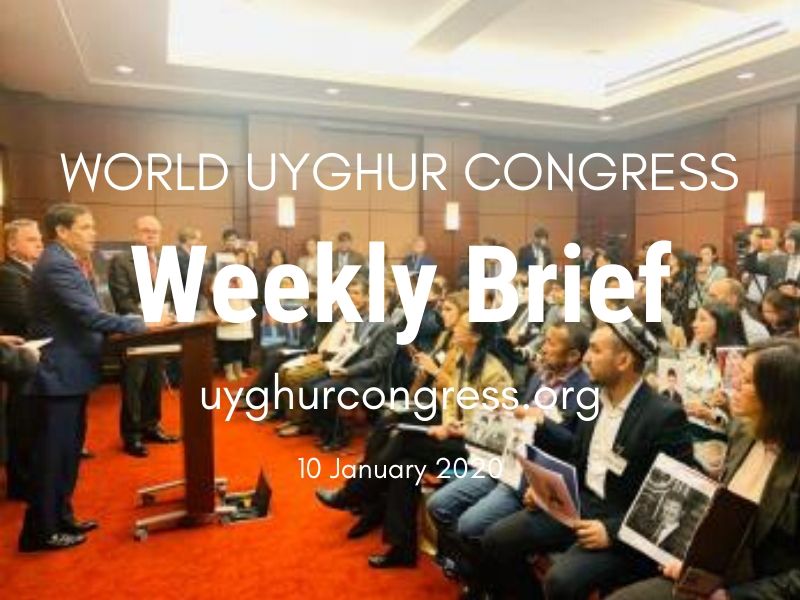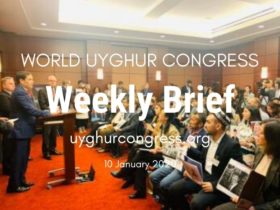WEEKLY BRIEF, JANUARY 10

World Uyghur Congress, 10 January 2020

Annual report of the Congressional-Executive Commission on China
On Wednesday the Congressional-Executive Commission (CECC) published its annual report listing severe right abuses committed in the mass internment camps in East Turkistan where athorities estimate that 1.8 million Uyghurs and other Muslim minorities are arbitrarly detained. According to this report the situation in East Turkistan has worsened within one year.
Furthermore, the report details grave human rights violations like “security personnel at the camps subjected detainees to torture, including beatings; electric shocks; waterboarding; medical neglect; forced ingestion of medication; sleep deprivation; extended solitary confinement; and handcuffing or shackling for prolonged periods”.The CECC concludes in its report that China’s system of extrajudicial internment camps meets the definition of crimes against humanity.
At the official CECC press conference, the Uyghur American Association was present with pictures of their missing relatives. Congressman Jim McGovern and Congressman Marco Rubio promised to the Uyghur community to stand in solidarity with them.
Chinese authorities demolish more than 100 Uyghur cemeteries
This week CNN reported that more than 100 famous ancient cemeteries like the Sultanim Cemetery and the graveyard in Xayar County have been destroyed by the Chinese authorities. As the CNN team was researching sources in the Uyghur community and analyzing hundreds of satellite images, they detected more than 60 vanished graveyards in addition to 45 destroyed cemeteries, reported by French news agency AFP and satellite imagery analysts Earthrise Alliance, in October 2019. The investigations led byCNN proved once again China’s repressive methods deployed to eradicate the Uyghur culture and heritage.
Former camp detainees in Kazakhstan are at risk of being sent back to China
Former camp detainees who fled to Kazakhstan are endangered to be deported back to China. Gulzire Awulqanqizi, who fled to Kazakhstan and testified about her horrific treatment in the camps, may now be at risk of being returned to China. In other cases Kazakh authorities put ethnic Kazakhs into jail who crossed the border illegally, fleeing Xinjiang’s camps and the Chinese authorities. Furthermore, asylum status has been denied to refugees from East Turkistan by Kazakh authorities. Uyghurs find themselves in vulnerable positions, as they are at risk of deportation back to China by other muslim countries, like Egypt.
Academics calling on publishers to take stronger stance on Uighur persecution
Academics have been highly concerned about Western newspapers publishing papers focusing on the DNA of Uyghurs and other minority groups by Chinese scientists affiliated with the country’s surveillance agencies. Furthermore, academics like Rachel Harris, professor in ethnomusicology at SOAS University of London, criticised that the “systems used against Uighurs are now in many cases being linked directly to joint research projects with universities and companies in the West”.
Due to these concerns, academics urge academic publishers to take stronger actions in response to China’s mass surveillance system which has been created with the help of Western research. As a consequence, academic publishers like Springer Nature are planning to review their guidelines and re-evaluate papers published on Uyghurs and other minority groups.

